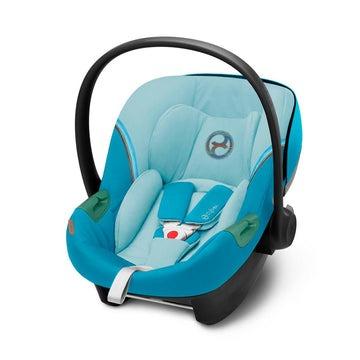Protect Your Tools and Tires: Impact-Resistant Garage Flooring That Lasts

When it comes to protecting your garage, durability is everything. From heavy vehicles and tool drops to chemical spills and tire wear, your garage floor faces daily challenges. Choosing impact-resistant garage flooring not only extends the life of your tools and tires but also provides a safer, cleaner, and more functional space. If you’ve ever dealt with cracks, stains, or chipped concrete, this guide will help you understand why upgrading your flooring is one of the best long-term investments you can make.
And here’s the good news: today’s flooring solutions are designed with cutting-edge materials that balance strength, impact resistance, and tire protection—so your garage can finally work as hard as you do.
Why Garage Flooring Matters More Than You Think
Most people view their garage as just a storage or parking area. However, your garage floor is the foundation of that space. If it’s weak or easily damaged, everything from your vehicle’s tires to your power tools can suffer.
-
Tire damage: Bare concrete generates heat and friction that accelerates tire wear.
-
Tool protection: Dropping a wrench or drill on concrete risks both the floor and the tool itself.
-
Safety concerns: Cracked, oily, or uneven flooring increases slip-and-fall accidents.
In short, your garage flooring is not just cosmetic—it’s a protective shield for your tools, tires, and overall workspace.
What Makes Flooring “Impact-Resistant”?
Impact-resistant garage flooring is engineered to absorb shocks, resist pressure, and provide resilience against everyday wear. Materials such as rubber tiles, PVC flooring, and epoxy coatings are specifically designed to handle:
-
Heavy vehicle weight without cracking.
-
Repeated tool drops without chipping.
-
Temperature and chemical resistance.
-
Long-term tire traction without peeling or marking.
Unlike traditional concrete, these options create a cushioned yet tough surface that reduces strain on your tools and prevents unnecessary tire stress.
Benefits of Installing Impact-Resistant Garage Flooring
1. Protects Your Tires
Garage flooring with impact resistance offers a smooth, non-abrasive surface. This means your tires don’t develop flat spots or premature wear from sitting on bare concrete. For car enthusiasts, this is a game-changer.
2. Safeguards Your Tools
Dropped tools are inevitable. Instead of breaking the tool—or denting the floor—impact-resistant flooring absorbs the shock, saving you money in replacements.
3. Enhances Durability
High-quality flooring lasts for years, even under constant exposure to vehicles, oil, and chemicals. It doesn’t chip or crack like untreated concrete.
4. Creates a Safer Workspace
Anti-slip textures and oil-resistant coatings reduce accident risks, keeping your garage safe for both family and vehicles.
5. Adds Professional Value
Upgraded garage floors not only improve functionality but also increase the overall value of your home.
Types of Impact-Resistant Garage Flooring
When choosing flooring, durability and usability are key. Here are the most trusted options:
Rubber Flooring
Rubber flooring is one of the most popular choices for garages. Its shock-absorption properties make it perfect for protecting tools and tires. It’s also easy to clean, resistant to spills, and designed to last. For example, companies like rubberfitfloors provide premium-quality flooring options tailored to heavy-duty use.
PVC Garage Tiles
These interlocking tiles are easy to install, durable, and resistant to chemical spills. They can handle the weight of SUVs, trucks, and heavy equipment without denting.
Epoxy Coating
A sleek, durable option that provides a smooth finish while resisting chemicals and tire marks. Though epoxy is long-lasting, it requires proper installation for best results.
Hybrid Flooring Systems
Some homeowners combine rubber mats with epoxy or tiles for added resilience, creating a fully customized solution.
Gym Flooring in Your Garage: A Smart Investment
Many homeowners are now installing gym flooring in garages, even if the space isn’t just for workouts. Why? Because gym flooring is specifically designed for impact absorption and tire protection. Whether you’re dropping weights or parking your SUV, the same durability and safety features apply. This makes gym flooring one of the most versatile choices for anyone seeking long-lasting protection.
How Impact-Resistant Flooring Protects Your Investment
Think about the costs of replacing tools, repairing tires, or resurfacing cracked concrete. These expenses add up quickly. With impact-resistant flooring, you:
-
Save money on tire replacements and tool repairs.
-
Reduce maintenance costs by preventing concrete damage.
-
Increase resale value by maintaining a clean, damage-free garage.
Simply put, impact-resistant flooring isn’t just a home improvement—it’s a long-term investment in durability and safety.
Expert Tips for Choosing the Right Garage Flooring
-
Assess Your Needs – Do you use your garage mainly for vehicles, tools, or as a multipurpose space?
-
Consider Traffic Levels – If your garage handles heavy cars or machinery, rubber or PVC is ideal.
-
Think About Safety – Look for slip-resistant surfaces, especially if you deal with oil and water.
-
Maintenance – Choose a flooring type that’s easy to clean and resistant to stains.
-
Budget Wisely – Spending a bit more upfront saves you costly repairs later.
Marketing Insight: Why Now Is the Best Time to Upgrade
Homeowners are realizing that a strong garage floor enhances not just functionality but also aesthetics and resale value. With modern materials and affordable solutions, upgrading to impact-resistant flooring is easier than ever. By investing now, you’re protecting your tires, tools, and property while creating a professional-grade garage that stands out.
FAQs
1. Does impact-resistant garage flooring prevent tire marks?
Yes, high-quality rubber and epoxy floors are designed to resist tire scuffing and heat damage.
2. Is rubber flooring suitable for both cars and tools?
Absolutely. Rubber flooring absorbs shock from dropped tools and prevents tire wear from vehicles.
3. Can I install garage flooring myself?
Many options like PVC tiles and rubber mats are DIY-friendly, while epoxy may require professional installation.
4. How long does impact-resistant flooring last?
With proper care, rubber and PVC flooring can last over 15 years, while epoxy coatings often last a decade or more.
5. Does garage flooring increase home value?
Yes. A well-finished, impact-resistant garage floor adds curb appeal and boosts resale value.
Final Thoughts
Choosing impact-resistant garage flooring is more than just a home improvement project—it’s about protecting your tools, tires, and safety. Whether you go with rubber flooring, PVC tiles, or epoxy coatings, the key is investing in durability that truly lasts.
For those who want long-term reliability, companies like rubberfitfloors provide tailored solutions that balance quality with functionality. By upgrading today, you’re ensuring your garage stands strong for years to come—giving both your tools and your tires the protection they deserve.
Κατηγορίες
Διαβάζω περισσότερα
The comprehensive use of integrated methodologies yields a wonderful Molding Compound Phenolic Thermoset Resin Market research report that plays an imperative part to shape the decision-making procedures of the business. This well-crafted report goes further than surface-level overview to deeply scrutinize prominent industry players, comprising detailed study of their company profiles, latest...

Executive Summary Cri-Du-Chat Syndrome Treatment Market Size and Share Across Top Segments CAGR Value The global Cri-Du-Chat syndrome treatment market size was valued at USD 1.17 billion in 2024 and is expected to reach USD 3.34 billion by 2032, at a CAGR of 14.00% during the forecast period Cri-Du-Chat Syndrome Treatment Market is a detailed market research report that serves many...

"Executive Summary Local Area Network (LAN) Cable Market : CAGR Value The global local area network (LAN) cable market size was valued at USD 14.3 billion in 2023 and is projected to reach USD 21.29 billion by 2031, with a CAGR of 5.10% during the forecast period 2024 to 2031. This Local Area Network (LAN) Cable Market large-scale market research report is likely to...

Millions of people worldwide are connected by their passion for football, which is more than simply a sport. Among Europe’s premier divisions, Italian Serie A maintains a particular position for fans who love its history, great clubs, and world-class players. Every season, Serie A features exciting games with legendary teams like Juventus, AC Milan, Inter Milan, and AS Roma. Betting on...

Choosing the correct baby car seat will be among the most crucial choices you will make as a parent regarding the safety and comfort of your child. Knowing where to start may be taxing given the abundance of possibilities. Baby car seats have a lot of features meant to keep your youngster secure and comfortable during vehicle travel. Here are some salient aspects you should search for when...



